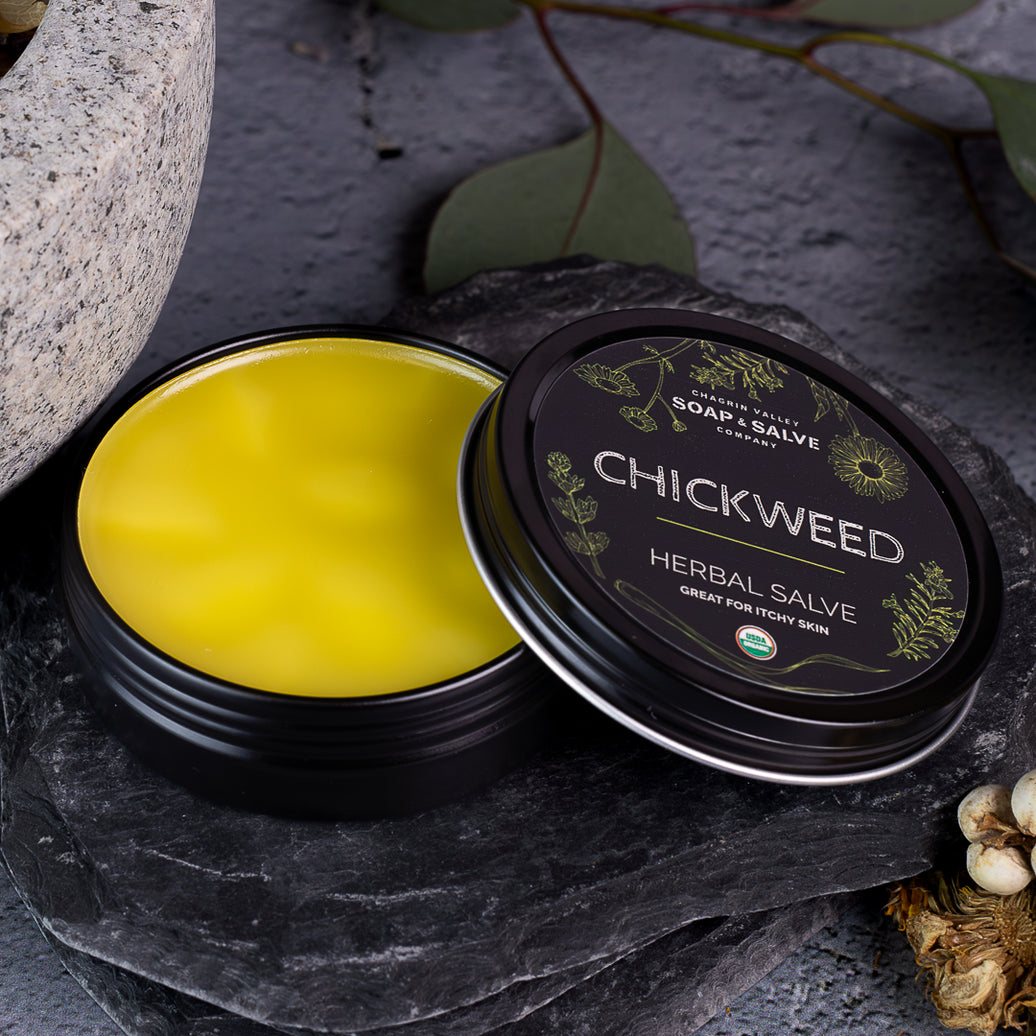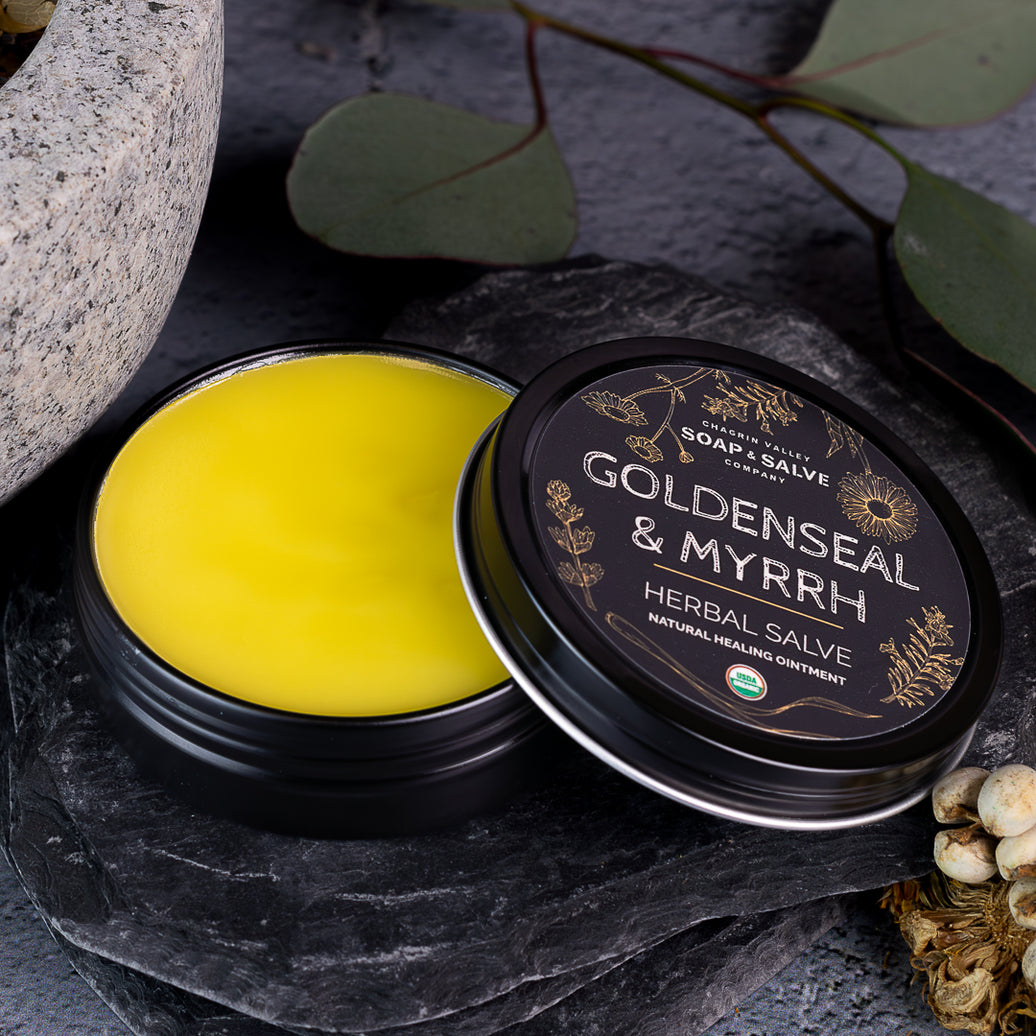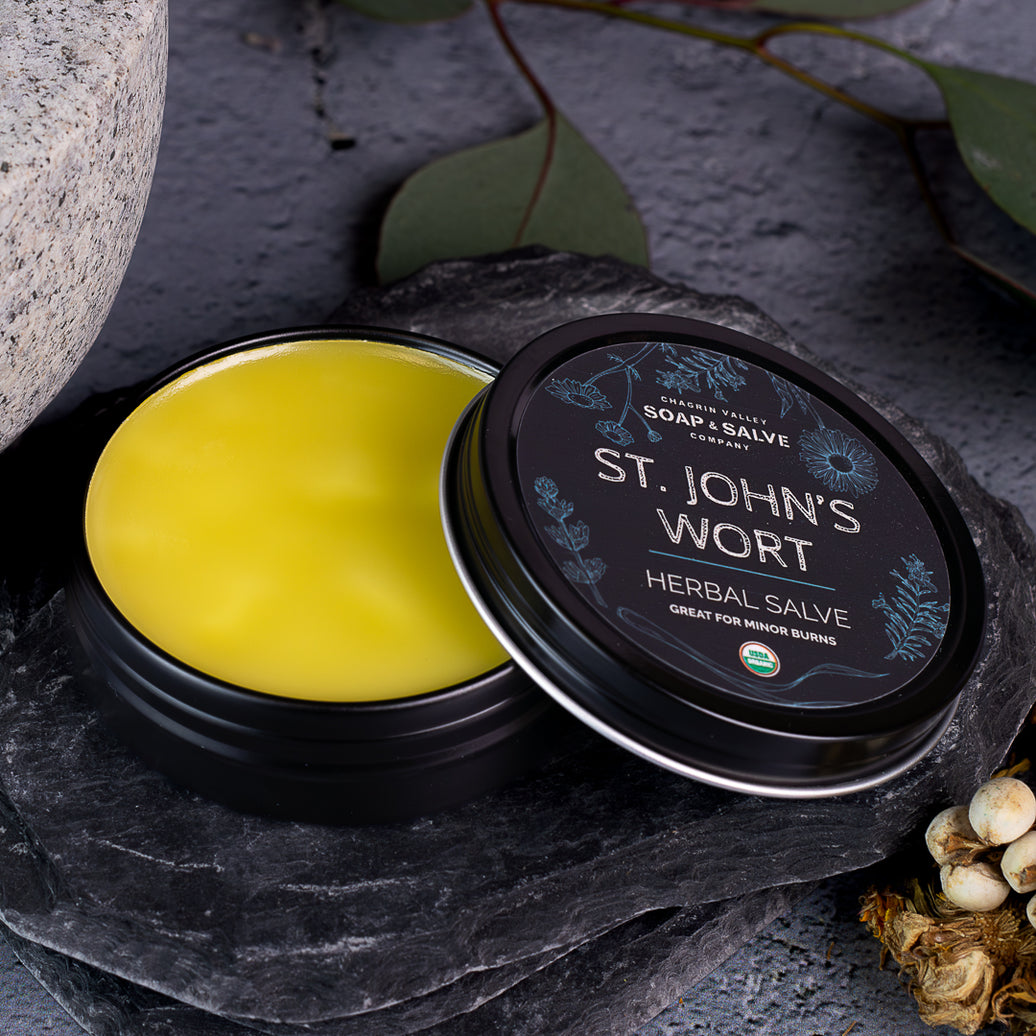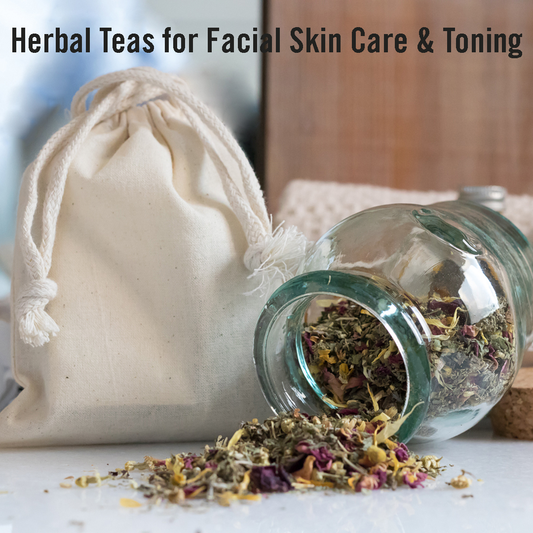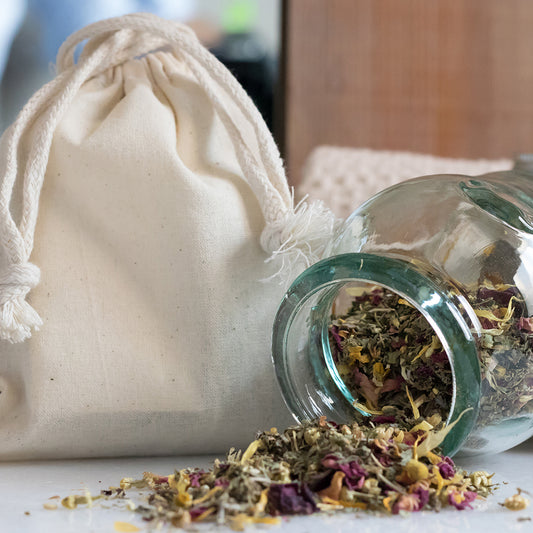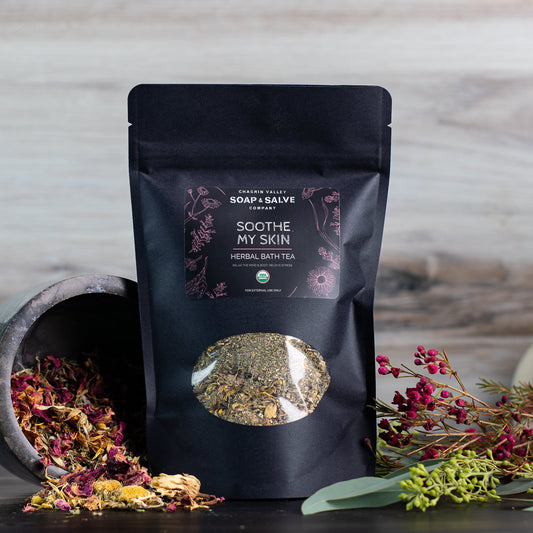Herbal Basics: Choosing Quality Herbs
To make quality herbal products you must start with quality herbs!
 Many folks complain that topical herbal remedies do not work. Sadly this can be due to poor-quality herbs. Herbs lose their potency over time.
Many folks complain that topical herbal remedies do not work. Sadly this can be due to poor-quality herbs. Herbs lose their potency over time.
Improper growing, handling, or storage will result in herbs with little flavor and few beneficial properties.
So, how do you judge good quality herbs? Use your senses! Look for color, texture, taste, and smell. Dried herbs should look, taste, and smell almost like they do when they are fresh. If the dried herbs have lost their color and scent, they have also lost their flavor and potency.
Many years of working with herbs, and growing and drying our own, have taught me to identify the qualities of good fresh and dried herbs.
Learn about Herbs and Medicinal Plants
Learning about herbs, wildflowers, and native plants can be overwhelming. There are many books, blogs, and magazines devoted to teaching you about herbs. My first suggestion, buy a field guide, go for a walk, and begin by learning about wild plants in your neighborhood.
When you learn and experience the characteristics of a plant when it is fresh, you will be better able to judge the quality of a plant when it is dried. Try growing your own in a small garden, in outdoor pots, or even on a windowsill.
If there are herbs that you are interested in using, see if you can find them in a friend's garden. Or better yet, use a field guide to local wildflowers and medicinal plants and go out and commune with nature. (Plant identification can be difficult, so be careful of poisonous look-a-likes!)
The point here is not to gather herbs, but to become familiar with plants and herbs indigenous to your area. You will be surprised how many plants prized for their therapeutic properties are growing all around you.
Many herbs that are not indigenous to your area may be available to view at a local nursery.
Choose the Right Herbal Company
Often times the most convenient way to obtain organic herbs is to purchase them already dried.
When purchasing dried herbs it is important that you look for companies that have a good reputation, are well-established, and display knowledge about the plant material they sell. In this case "you get what you pay for" is often very true. If you find a company selling a normally "expensive" herb for a cheap price it is probably being adulterated and cut with cheaper herbs.
Companies that purchase and store large quantities of herbs for long periods of time with a short turnover rate, or obtain herbs internationally, often sell herbs that are irradiated or fumigated which can seriously jeopardize the integrity of the plant.
The company should have an environmental commitment for sustainable harvesting policy and all plant material should be dated to help you monitor shelf life.
Look for the Following in Growing Practices:
 Personally, I don't see the value of creating culinary or therapeutic herbal preparations with herbs that are laden with chemicals. Thus, proper growing practices are critical.
Personally, I don't see the value of creating culinary or therapeutic herbal preparations with herbs that are laden with chemicals. Thus, proper growing practices are critical.
Organic: Herbs that are USDA-Certified Organic indicate that there are no synthetic pesticides, chemical fertilizers, herbicides, GMOs, synthetic chemicals, growth agents, or other chemicals used.
The plants are also free from irradiation and chemical sterilization.
Organic certification provides a guarantee that the herb meets the criteria established by the National Organic Program of The United States Department of Agriculture regarding the procedures for growing and handling.
USDA Organic
There are some herbs and plants that are simply not available as certified organic. Then you should look for . . .
Wildcrafted: This means that plants have been gathered from their natural environment. It is important to support companies that have an environmental commitment to be sure that materials are sustainably gathered.
Grown and Cultivated Without Chemicals: These are plants that are grown without the use of pesticides, chemical fertilizers, herbicides, GMOs, or synthetic chemicals and are free from irradiation and chemical sterilization but are not certified.
Herbs will rapidly lose their quality, potency, and effectiveness if not stored properly. Exposure to heat, air, moisture, and light can be very damaging to delicate herbs. Here are a few tips that I have learned about storing dried herbs I have purchased:
- Buy from a company that dates plant material to help you monitor shelf life
- Store herbs in sealed glass jars or plastic bags in a cool, dark place between 65-75 degrees
- Buy small amounts--only what you can use within 6 months to a year of purchase
- Dried herb roots and bark keep the longest from 1 to 5 years
- Leaves and flowers keep for about 6 months to 1 year
- Powdered herbs have the shortest shelf life of approximately 6 months
- Learn to trust your senses. Older dried herbs won’t necessarily go “bad,” but they will lose their flavor and potency
Join us next week when we discuss How to Prepare Herbs: Oil Infusions

